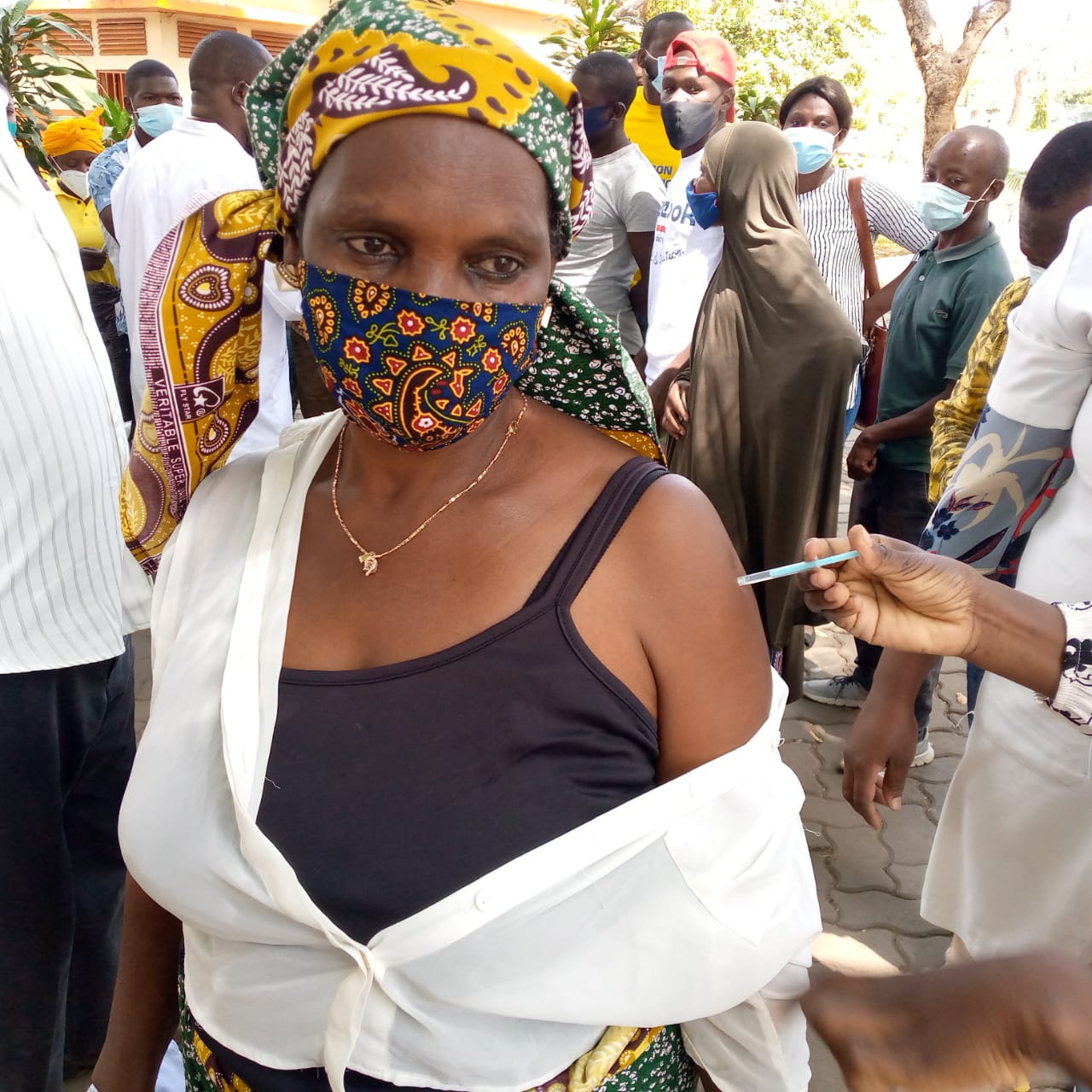How Knowledge Management Can Help You Find the Often Elusive Story
Published on September 14, 2022
by Katie Cook, with contributions from April Houston and Reshma Naik
This post was originally published on usaidlearninglab.org. You can find the original piece here.
This is the second in a blog series by MOMENTUM focused on knowledge management for global health programs. The first blog, “Knowledge Management Made Easy – Tips and Tools to Get All Staff on Board” can be found here. Please write to MOMENTUMKM@prb.org if you have questions about the tools and processes mentioned below.
Domingos Salvador wakes up every day with a mission — to get his community vaccinated against life-threatening, preventable diseases. As a community health worker in Herema, Mozambique, Domingos serves a critical role as the link between his community and the nearby Curruane Health Center.
How much do you know about vaccination campaigns in Mozambique? For most people who do not live or work there, the answer to that question is probably “not much.” My colleagues and I want to change that.

The MOMENTUM Routine Immunization Transformation and Equity project is working to reach people in marginalized communities with routine immunization services and COVID-19 vaccination in 14 countries across Africa, Asia, Europe, Eurasia, Latin America, and the Caribbean. Mozambique is one of those countries, and Domingos Salvador – the community health worker from the opening story – is deeply involved in this important work.
All international NGOs face a common challenge: How do we learn about the everyday experience of Domingos and others like him and make it matter to people living thousands of miles away? The answer is often storytelling. There are countless stories of health heroes like Domingos making a positive difference in the lives of people in their communities. But finding these stories can be easier said than done.
Those of us in the knowledge management or communications space who are tasked with storytelling are often far away from day-to-day work that’s happening on the ground. On the other hand, those who are managing and implementing the work are so close to it, they may not realize that others would be interested in hearing about what they are doing and seeing every day. They have their own goals and priorities. Capturing and sharing stories may not fit into their often long, tiring workdays. They may also be unaware of how their work may fit into a project’s broader picture or messaging.
This is where knowledge management (KM) can help. We define knowledge management as the process of collecting and curating knowledge and sharing it with the right people, at the right time, in the right way, so it can guide their actions. When the process is set up well, anecdotes, insightful experiences, and interesting stories will naturally emerge from the information that is being collected. We hope that sharing how our system is set up may give you ideas of how to build or improve your own story capture and telling processes.
Our Workflow: Finding the Story
Through regular team meetings, reflection sessions, and other collaborative processes for knowledge discovery and review, the MOMENTUM Routine Immunization Transformation and Equity project collects information on ongoing activities. Staff then input that information into a project management platform called Monday.com that allows us to easily track progress, store data, and share information in real-time. The system sends out quarterly reminders to provide updates while customized forms make it easy for field-level staff to input relevant information on their activities. Country- and global-level teams can then review this in a dashboard and work together to address challenges and make real-time adjustments to program implementation. This process also enables us to recognize common threads and identify where there may be interesting stories to tell.
The Follow-Through: Collecting and Telling the Story
We first heard about the work Domingos was doing in Mozambique during our quarterly report writing process. That is when we identified parallels between his work and that of other community leaders engaged in MOMENTUM immunization activities in the Democratic Republic of Congo and India. Once we noticed the significant community-level work that was happening across the three countries, we set up interviews with community leaders to learn how the project’s activities played a role in their lives and the lives of those around them. In the end, we were able to produce three stories based on the knowledge captured through our systems and processes, including this one, featuring Domingos and two other community leaders, that was shared on USAID’s Medium blog during World Immunization Week.
Some staff are not yet using this system; however, there are some early champions who are demonstrating its utility. To support staff to use it, we offer an orientation and direct them to self-directed hands-on training. We are also working with our country teams to integrate use of the platform within daily routines and broader project workflows. Staff are further motivated when they see colleagues’ work being showcased because of their engagement with the system and when they realize the time-saving benefits of being able to easily retrieve previously catalogued inputs for reporting.
A strong knowledge management system helps everyone involved in a global project stay on top of ongoing activities and emerging lessons. It connects the implementer in the rural community to the monitoring and evaluation officer in the capital to the knowledge management or communications lead at the organization’s headquarters and the donor agency across the globe. It helps you see problems and solutions in real time. And it can help you uncover the human stories behind the data, so you can help your audience to understand why your work matters.

